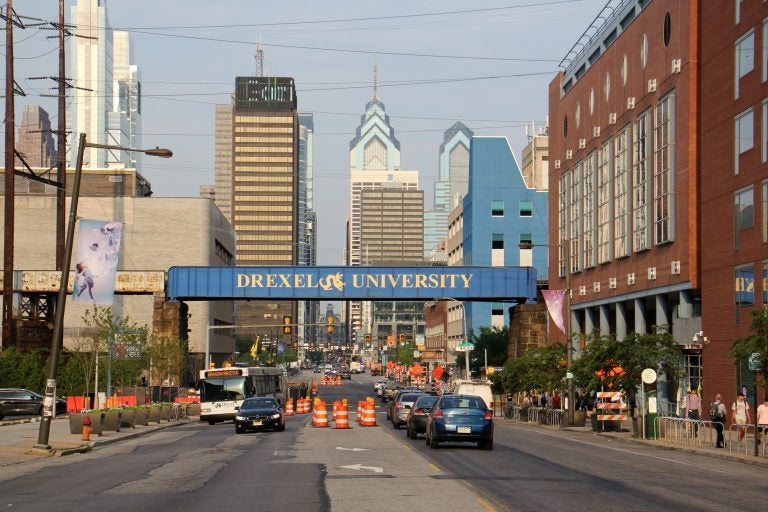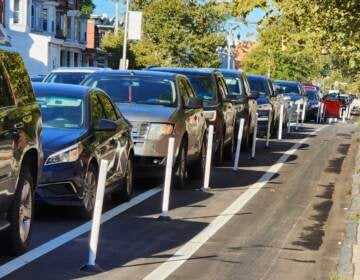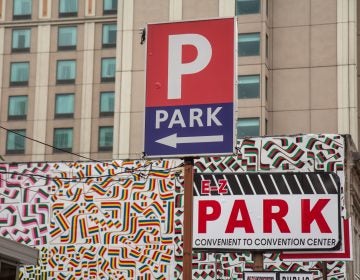New breed of traffic cop could soon hit Philadelphia streets
First announced as part of a new strategy to crack down on Center City gridlock, the proposed officers would be dispatched to Center City, University City and Manayunk.

Thousands of people travel between University City and Center City daily. (Emma Lee/WHYY)
This story originally appeared on PlanPhilly.
—
If Philadelphia cops spent less time policing traffic, they could dedicate more energy to fighting the city’s soaring homicide rate.
Or at least that’s the idea behind City Council President Darrell Clarke’s proposal for a new class of civilian traffic cops focused on traffic and quality-of-life enforcement.
“The reality is that we’ve had 351 homicides in the city of Philadelphia, numbers that we haven’t seen in more than a decade,” said Clarke on Monday at a hearing of the City Council’s Committee on Law and Government. “We need to focus our police department on crime, the things that they have been trained for.”
The proposal to put unarmed “public safety enforcement officers,” on city streets, first introduced in September, advanced with an approval out of committee at Monday’s hearing, clearing it for a final Council vote.
First announced as part of a new strategy to crack down on Center City gridlock, the proposed officers would be dispatched to Center City, University City, Manayunk and other traffic hotspots.
Police Commissioner Richard Ross spoke in support of the proposal on Monday.
“In addition to easing the flow of traffic and allowing police officers to do law enforcement work, [the new officers] will help with visibility,” Ross said.
A 2018 report from the Center City District found the number of residents in the core of Center City—river to river, between Vine and Pine Streets — increased by 30 percent since 2000.
The rise in population, along with an uptick in traffic from delivery trucks and ride-hailing vehicles, has increased traffic congestion substantially. A growing number of bicycle commuters also raises concerns about cars illegally parked in bike lanes.
Clarke said Monday that the officers would help the city implement its Vision Zero program, which aims to eliminate all traffic-related deaths by 2030.
Randy LoBasso, policy manager for the Bicycle Coalition of Greater Philadelphia said “civilian officers could have a positive impact on congestion, safety and could help enforce illegal parking.”
LoBasso said that illegal parking “more than anything, slows down traffic and frustrates drivers, putting all road users at risk.”
Under the resolution reviewed on Monday, Brian Abernathy, city managing director, will determine details of officer deployment and duties.
Other details such as the budget, operations, and level of authority for the officers have yet to be determined. There will be a one-year period to resolve those questions between the time when voters approve the new class of civilian officers and their roll out on city streets.
The one dissenting vote on Monday came from Councilman David Oh.
“I think there are more positive ways to deal with traffic congestion rather than sending more people there,” Oh said, adding that despite his opposition to the civil servant officers, he supports the idea of adding more sworn officers to the city’s Police Department.
Clarke’s proposal could go up for a vote as early as March 14. If the legislative body gives its blessing, voters will be asked to approve the new class of civil servants in a question included on the ballot during the municipal election in May.
WHYY is your source for fact-based, in-depth journalism and information. As a nonprofit organization, we rely on financial support from readers like you. Please give today.







